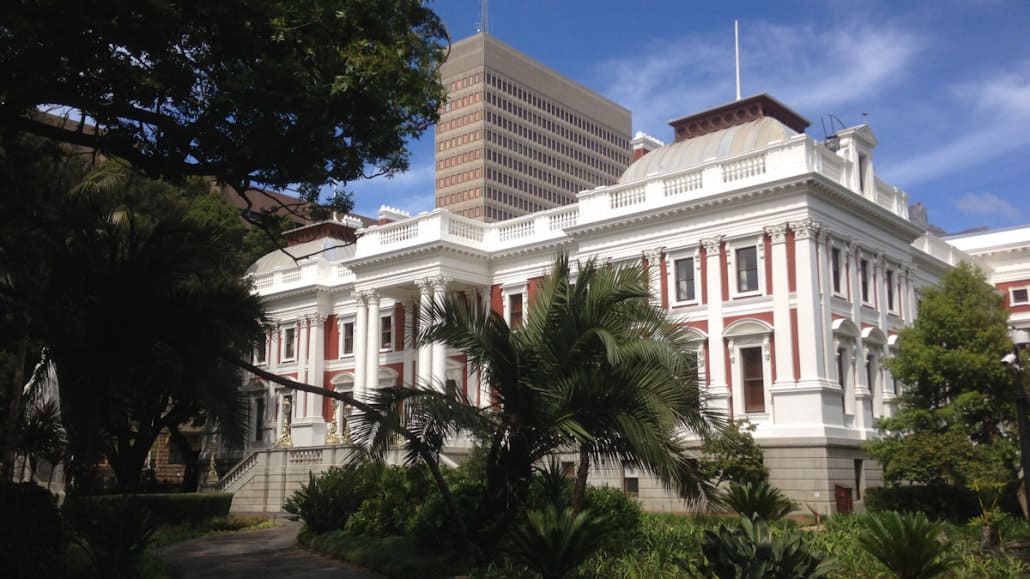Image: Wikimedia Commons, used under a Creative Commons Attribution-Share Alike 3.0 Unported license
South Africa’s law-making regime is another casualty of the corruption and mismanagement that was prevalent during the state capture years, writes Caroline James, advocacy co-ordinator at amaBhungane. Here she describes how amaBhungane and Corruption Watch had to rush to get their joint submission to Parliament for the General Laws (Anti-money Laundering and Terrorist Financing) Amendment Bill, and follows it up with a detailed analysis of how this experience exposes the weakness of our legislative process.
In October, we made submissions to the parliamentary Standing Committee on Finance on one of a series of bills moving, swiftly, through Parliament. This bill – the General Laws (Anti-money Laundering and Terrorist Financing) Amendment Bill – was Treasury’s contribution to the attempt to avoid South Africa being grey-listed by the Financial Action Task Force.
While much of the country’s focus was on the effect of that possible grey-listing on the economy, we were looking at what the bill contained and we were concerned.
Our submissions, made with Corruption Watch, are available here. However, our concern went further than the content of the bill. Through our engagement with the drafting process it became clear that the process itself demonstrates the worrying extent of our country’s dysfunction.
One of my first responsibilities as a new amaBhungane team member was to coordinate these submissions and we had a whirlwind two weeks examining the bill, comparing it to previous amendment bills on which we had commented, and putting together a document which effectively conveyed our concerns.
This deadline was astonishing, not least because we then had to present our submissions in a Zoom committee meeting the day after we had filed them. We were told that each organisation had ten minutes to present!
Trying to summarise complex arguments in a ten-minute presentation, to a committee who could not have had time to analyse the submissions seemed impossible. Participating in the committee meetings was eye-opening. We saw how the committee members felt that the short time-frames given to them disrespected the legislative process and prevented them from adequately giving effect to their obligations to facilitate public participation.
We also saw how load-shedding disrupts and delays important meetings, crucial to the law-making process. This snapshot into our legislative regime was sobering.
One reason why Parliament was running on such a tight schedule was because National Treasury had sent the committee their version of the bill only three months before they expected it to be finalised. We may get frustrated with the snails’ pace at which legislation moves through Parliament normally, but this type of timeline is certainly not the solution.
In this piece we discuss why our law-making system is under so much pressure and how the rushing through of laws threatens the legitimacy of the process. Grey-listing is not an outcome we want to see. But neither is the introduction of laws which do not create strong, resilient and transparent financial crime-fighting regimes.
South Africa needs all arms of government working to establish a post-state capture culture of accountability. This includes the executive and legislative branches tasked with revamping our financial disclosure and law enforcement systems.
After the Zondo Commission laid bare the level of wrongdoing in the last decade, and with the National Prosecuting Agency slowly taking the perpetrators to court, we need to look at what the capturers left behind. Based on our experience in the last few months, National Treasury and Parliament have been left under-resourced and under-capacitated.
Our law-making regime is yet another casualty of corruption and mismanagement.

